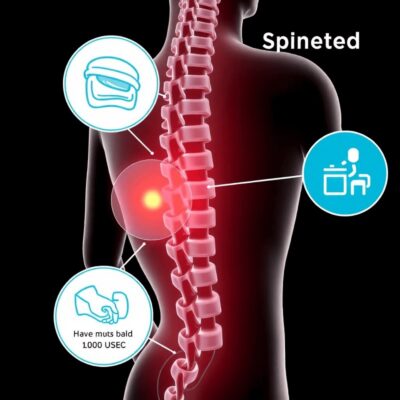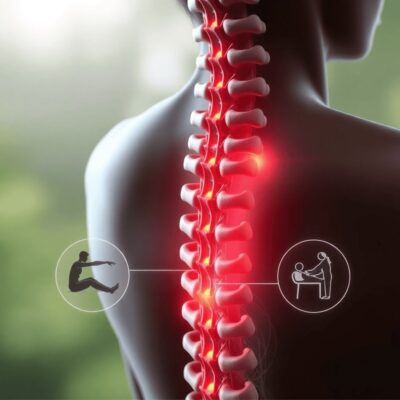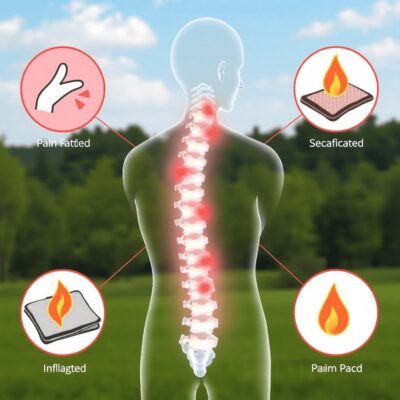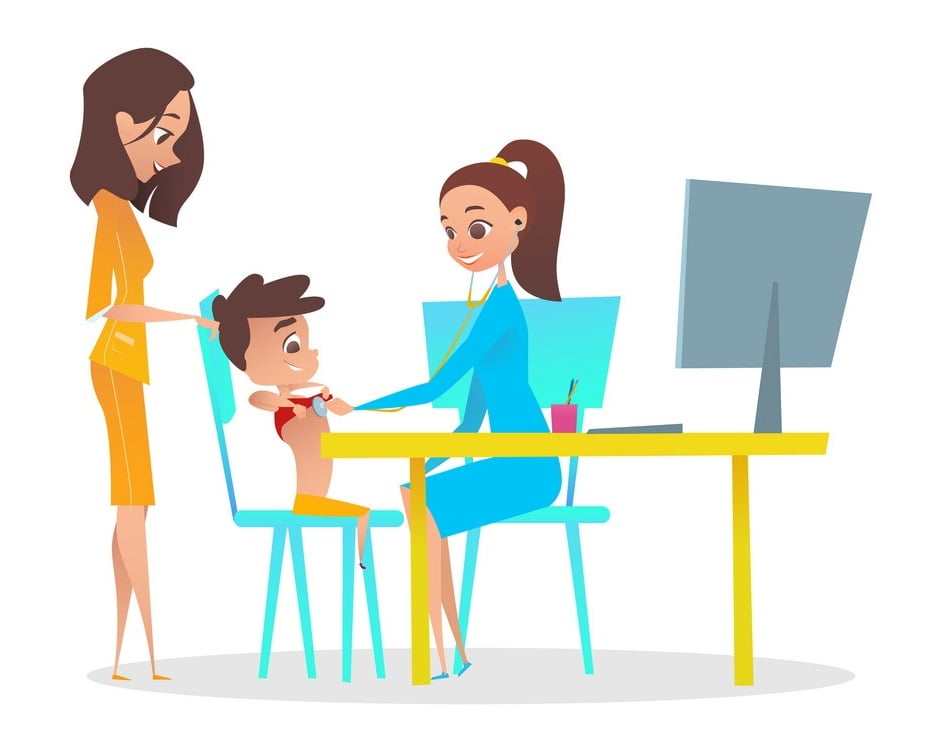Services
Back Pain Caused by a Pinched Nerve or Degenerated Disc?
Back Pain Caused by a Pinched Nerve or Degenerated Disc?
Back pain linked to spinal disc problems can stem from two distinct sources: nerve irritation from a protruding disc or pain originating from the disc itself. Understanding this difference is crucial for effective treatment.
You might hear various terms from medical professionals describing these conditions:
- Slipped disc
- Protruding disc
- Pinched nerve
- Degenerated disc
These terms can create confusion, yet identifying whether your symptoms come from a pinched nerve or a degenerated disc shapes your entire treatment journey. Each condition requires specific approaches for optimal healing and pain relief.
In this article, you’ll discover:
- Key differences between nerve-related and disc-related pain
- Common causes of pinched nerves
- Mechanisms behind degenerated disc pain
- How to identify your specific condition
- Steps toward finding the right treatment plan
Understanding your exact condition empowers you to make informed decisions about your treatment options and increases your chances of successful pain management. 
A herniated disc can irritate nerves and cause pain, or pain may be in the disc
Your spinal discs act as natural shock absorbers between vertebrae, but when a disc herniates, it can create two distinct types of pain:
1. Nerve-Related Pain
- The disc’s soft inner material pushes through the outer layer
- This material compresses nearby nerve roots
- You experience sharp, radiating pain along the nerve pathway
- Common symptoms include tingling, numbness, or weakness
2. Disc-Related Pain
- Pain originates from the damaged disc itself
- Characterized by deep, aching sensations
- Pain typically worsens with specific movements
- The affected area feels tender to touch
The location and nature of your symptoms help identify the source:
Nerve Compression Signs
- Pain radiates down arms or legs
- Specific body positions provide relief
- Symptoms follow nerve distribution patterns
Disc Damage Indicators
- Pain centers around the injured disc
- Movement in any direction causes discomfort
- Pressure on the spine increases pain
Understanding these differences guides treatment choices. A herniated disc pressing on nerves might require different approaches than pain stemming from the disc structure itself, such as those experienced in cases of herniated disk in the lower back.
Understanding Pinched Nerve Pain
A pinched nerve in your spine creates distinct pain patterns and symptoms that radiate along specific nerve pathways. The pain often feels sharp, burning, or electric-like, accompanied by numbness, tingling, or muscle weakness in the affected areas.
Common Causes of Pinched Nerves
1. Herniated Discs
- Occurs when the soft inner core of a spinal disc pushes through the tough outer layer
- Direct pressure on nearby nerve roots
- Most common in the lower back (lumbar spine)
- Can cause sciatica when affecting the L4-L5 or L5-S1 nerve roots
2. Spinal Stenosis
- Narrowing of the spinal canal
- Puts pressure on nerve roots
- Age-related condition affecting people typically over 50
- Symptoms worsen with walking or standing
3. Bone Spurs from Osteoarthritis
- Extra bone growth along spine edges
- Develops as joints deteriorate
- Creates pressure points on nerve roots
- Pain increases with movement
Less Common Causes
Additional conditions that may lead to nerve compression include:
- Tumors pressing against nerve roots
- Spinal infections causing inflammation
- Spondylolisthesis (vertebral slippage)
The location of your pinched nerve determines your symptoms:
- Cervical (neck): Pain radiates down arms, hands
- Thoracic (middle back): Pain wraps around ribcage
- Lumbar (lower back): Pain extends into buttocks, legs
Key Symptoms to Watch For:
- Radiating pain following specific nerve patterns
- Numbness or tingling in extremities
- Muscle weakness in affected areas
- Pain that worsens with certain movements
- Burning or electric shock sensations
Your symptoms might intensify with specific activities or positions. Many people experience increased pain when:
- Sitting for extended periods
- Bending or twisting
- Lifting heavy objects
- Sleeping in certain positions
Understanding these patterns helps identify the specific nerve affected and guides treatment decisions.
Degenerated Disc Pain
Discogenic back pain occurs when the intervertebral disc itself becomes the source of pain. Your spinal discs can degenerate through natural wear and tear or traumatic injury, triggering several pain-causing mechanisms:
1. Inflammatory Response
- Degenerating discs release inflammatory proteins into the disc space
- Herniated discs leak inner contents, causing nerve irritation
- Chemical inflammation creates persistent pain signals
2. Disc Shrinkage
- Dehydration leads to loss of disc height
- Reduced disc space narrows the spinal canal
- Compressed nerve roots result in radiculopathy symptoms
3. Spinal Instability
- Weakened discs reduce spine stability
- Decreased resistance to spinal movement
- Irregular motion patterns stress surrounding tissues
The body responds to these changes through protective muscle spasms, creating sharp, shooting pain sensations. You might experience localized pain near the affected disc or radiating pain that travels into your leg through nerve pathways.
Unlike pinched nerve pain, discogenic pain originates from the disc tissue itself. The pain intensifies with specific movements and positions that put pressure on the damaged disc. Common triggers include:
- Sitting for extended periods
- Bending forward
- Lifting heavy objects
- Twisting movements
The severity of your symptoms often correlates with the degree of disc degeneration and the specific location of the affected disc in your spine. It’s worth noting that severe cases may lead to complications such as transverse myelitis, a rare neurological condition that can arise from significant spinal issues, leading to inflammation of both sides of one segment of the spinal cord.
Focus on the cause of your pain
Understanding the root cause of your back pain sets the foundation for effective treatment. A targeted approach addressing the underlying condition – whether it’s a pinched nerve or degenerated disc – creates better outcomes than merely managing symptoms.
Your healthcare provider will typically conduct several diagnostic tests:
- Physical examination to assess mobility and pain points
- Neurological tests to evaluate nerve function
- Imaging studies (MRI, CT scan, X-rays) to visualize spine structures
- Nerve conduction studies to measure nerve responses
These tests help create a precise diagnosis, leading to a customized treatment plan aligned with your specific condition.
Disha Arogya Dham’s Ayurvedic Approach
Disha Arogya Dham (DAD Ayurveda) offers traditional Ayurvedic treatments for back pain conditions. This ancient healing system views back pain through the lens of doshas – the body’s fundamental energies.
The DAD Ayurveda approach includes:
Personalized Treatment Plans
- Assessment of individual constitution (prakriti)
- Identification of imbalanced doshas
- Custom-tailored herbal formulations
- Lifestyle modifications
Therapeutic Treatments
- Abhyanga – specialized oil massage
- Kati Basti – localized treatment for spine
- Patrapinda Sweda – herbal compress therapy
- Panchakarma – deep cleansing procedures
These Ayurvedic treatments work to:
- Reduce inflammation naturally
- Strengthen spinal muscles
- Improve disc health
- Enhance nerve function
- Release muscle tension
DAD Ayurveda combines traditional wisdom with modern diagnostic tools to create comprehensive healing protocols. This integrative approach addresses both immediate pain relief and long-term spinal health restoration.
The facility’s experienced practitioners develop individualized treatment plans based on:
- Your specific diagnosis
- Severity of symptoms
- Overall health condition
- Lifestyle factors
- Treatment history
This methodical approach ensures each patient receives targeted care for their unique back pain condition, whether stemming from nerve compression or disc degeneration.
Conclusion
Managing back pain effectively requires a clear understanding of its root cause. Your symptoms might feel similar whether you have a pinched nerve or a degenerated disc, but each condition needs specific treatment approaches.
A qualified healthcare provider can:
- Perform targeted physical examinations
- Order appropriate diagnostic tests
- Create a customized treatment plan
- Monitor your progress
- Adjust treatments as needed
Don’t attempt to self-diagnose or treat persistent back pain. Professional medical guidance ensures you receive the most effective treatments for your specific condition, reducing the risk of complications and improving your chances of recovery.
Remember: Early intervention often leads to better outcomes in treating both pinched nerves and degenerated discs. Schedule an appointment with a spine specialist if you experience persistent back pain or related symptoms.
FAQs (Frequently Asked Questions)
What causes back pain related to a pinched nerve or degenerated disc?
Back pain can arise from a spinal disc problem where either a nerve is irritated by a protruding disc or the pain originates from the disc itself. Common causes include herniated discs, spinal stenosis, and bone spurs due to osteoarthritis.
How can I differentiate between pinched nerve pain and degenerated disc pain?
Pinched nerve pain occurs when a spinal disc compresses or irritates nearby nerve roots, leading to symptoms like radiating pain, numbness, or tingling. In contrast, degenerated disc pain, known as discogenic back pain, arises directly from the degeneration of the disc itself and may cause localized pain or radiculopathy.
What is radiculopathy and how is it related to back pain?
Radiculopathy refers to nerve pain that occurs when specific nerve roots in the lower back are irritated or compressed. This condition often manifests as sciatica when it affects nerves L4 to S3, causing pain that radiates down into the leg and foot.
What role does inflammation play in degenerated disc pain?
Inflammation plays a significant role in degenerated disc pain as inflammatory proteins can be released into the disc space during degeneration. This irritation can inflame nearby nerves, leading to increased pain levels.
How does Disha Arogya Dham approach treatment for back pain?
Disha Arogya Dham focuses on identifying the underlying cause of back pain rather than just alleviating symptoms. Their Ayurvedic treatment plans are tailored based on diagnostic tests conducted by doctors to ensure long-term relief.
When should I seek professional help for my back pain?
It is advisable to seek professional help if you experience persistent back pain, especially if accompanied by neurological symptoms such as numbness or weakness. An accurate diagnosis is crucial for effective treatment options.
Discover more from DAD Ayurveda
Subscribe to get the latest posts sent to your email.








